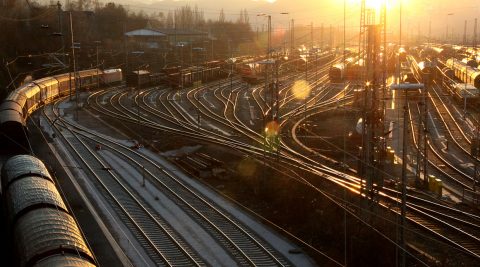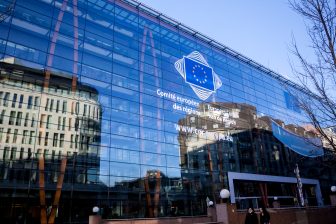
‘Railway companies should not have to pay for cancellations’
Railway companies should not have to carry the financial burden of train path cancellations or diversions. At the moment, international rail freight carriers too often face additional charges in case of a disruption. This is in breach of EU legislation, said the European Rail Freight Association (ERFA).
The lobby organisation presented a position paper on track access charges in the EU last week. Although EU legislation sets out the main charging principles for infrastructure managers, there are weaknesses and gaps in how these rules are applied at the national level. This has a negative impact on the railway undertaking business, the company states.
Cancellations
“Railway undertakings are having to pay for cancellations of international train paths, even when the cancellations were due to a force majeure incident on a national network”, ERFA writes. On a national level, companies are not required in case of a force majeure incident, but these rules do not apply to the international train leg. Due to this, incurred cancellation/reservation charges of the international leg of the train path may be charged by the neighbouring infrastructure managers.
“Not only do railway undertakings face the disruption of their train services. The cancellation charge is an important cost burden for the rail freight business. ERFA urges infrastructure managers to adapt their charging systems to support cross-border rail services.”
Train diversions
ERFA is also concerned about additional track access charges when a train is diverted onto another national network. If a train is diverted on another route within the national network, the infrastructure manager does not oblige the railway undertaking to pay the additional track access charges. However this does not always seem to apply when a train uses a diversionary route on a neighbouring network.
“This is again disadvantaging international rail services. ERFA asks infrastructure managers to abide by the EU Commission’s very clear position on this issue: ‘EU rail legislation provides that a railway undertaking shall not be charged for the additional costs if the train is diverted at the request of the infrastructure manager’.”
Incentives
Furthermore, ERFA pleads for incentives given to infrastructure managers in order to encourage the lowering of track access charges, as this is laid down in EU legislation. “An infrastructure manager enjoys a natural monopoly. In many cases there are no mechanisms in place to ensure that they keep their costs under control.”
It also warned that when calculating mark-ups, it is important not to forget the importance of guaranteeing the competitiveness of rail market segments. “Choosing the right level of mark-ups and ensuring the right analysis for their calculation would avoid situations where high mark-ups or incorrect calculation of mark ups leads to a reduction in rail traffic”, the lobby group wrote.
Lower costs
ERFA continued: “Track access charges are an important cost element of the railway undertaking business. Railway undertakings often feel that they are paying too much. Too much in terms of what they should be paying to cover “direct costs” and especially too much in terms of the limited comparable tolls road hauliers have to pay for accessing road infrastructure.
“In addition, railway undertakings often see increases in access charges without necessarily any corresponding improvements in the quality of the infrastructure/ paths, meaning that they cannot offer their customer any improved quality or added benefits for the higher costs.”
German scheme
The company supports the German decision to reduce track access charges in order to make rail freight transport more competitive with other modes of transport. “The European Commission’s recent approval of the German state aid scheme sends a clear message to other EU national governments: reduction of track access charges and a transfer of those lower costs to end customers is a positive step forward for getting more goods onto rail.”
ERFA added that the European Commission approved the scheme the reduction is based on compensation for the part of external costs that are avoided by the use of rail freight transport instead of road.





